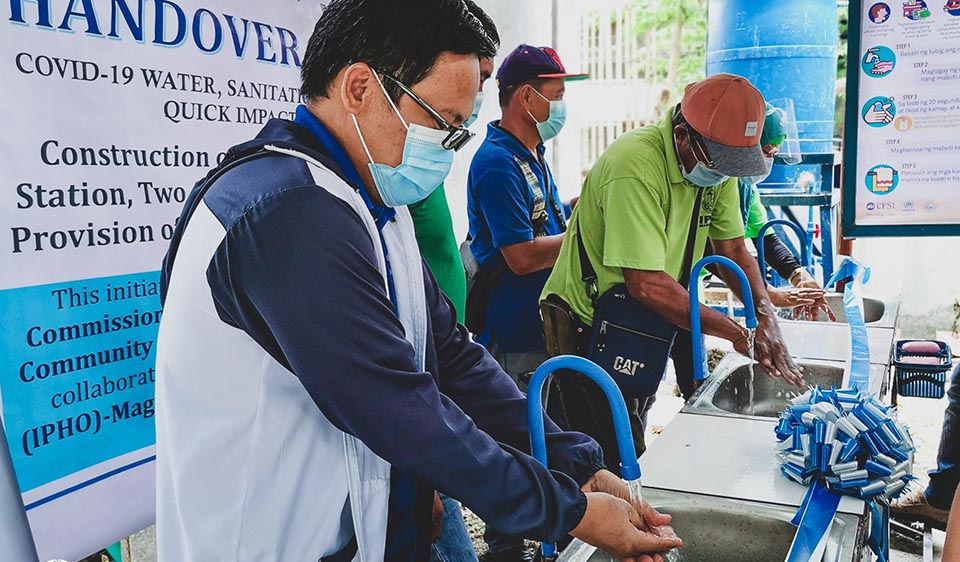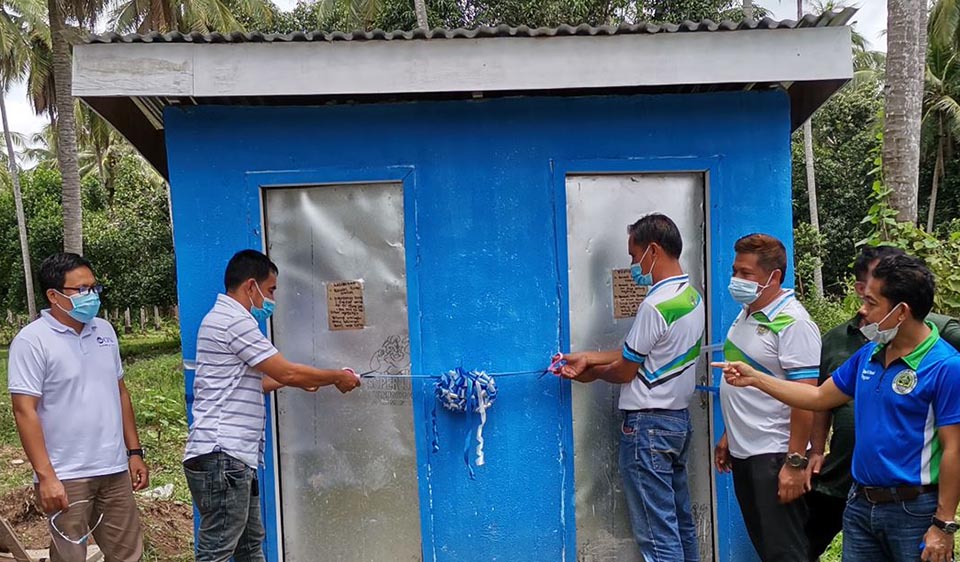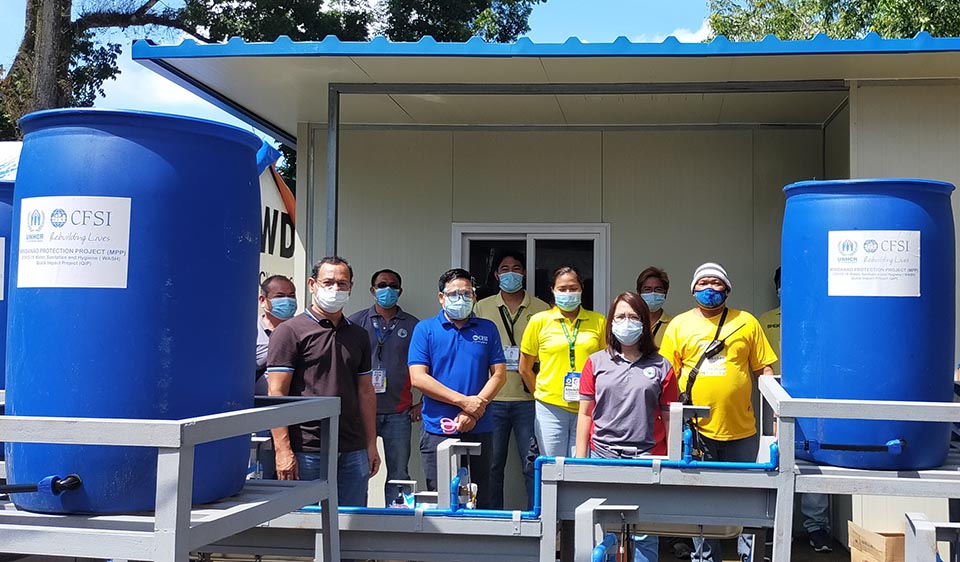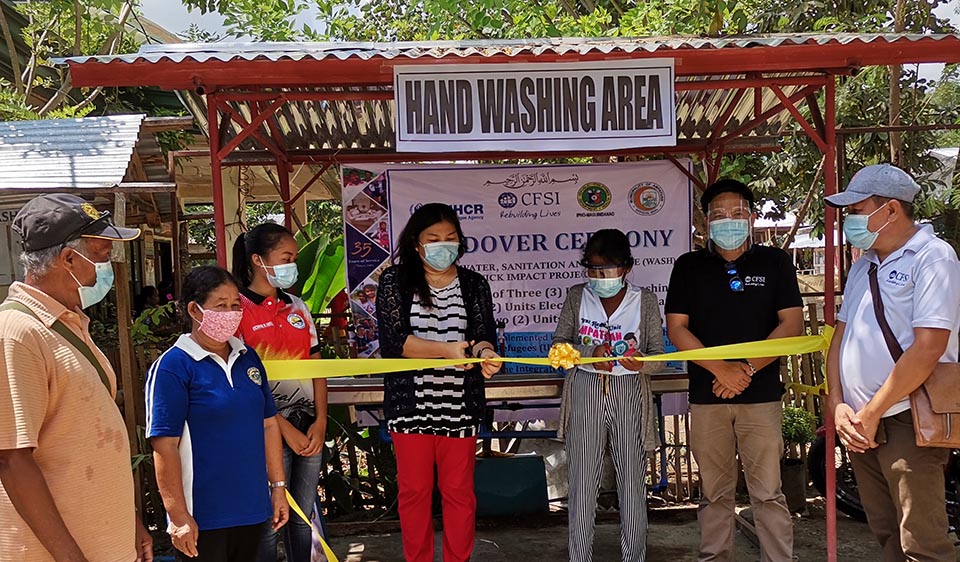In transitory sites across Mindanao, forcibly displaced families have limited access to basic services and are at their most vulnerable today. UNHCR has identified a number of prevention and response activities with local government units and partners to provide water, sanitation, and hygiene (WASH) facilities.
“We are very thankful for your help especially with COVID-19. This handwashing station is vital assistance for our evacuees and will help them follow the health standards to avoid the virus,” says Municipal Administrator Manoling Lalaguna of Makilala, North Cotabato.
There are currently 7,180 forcibly displaced individuals temporarily living in nine evacuation centers across Makilala. The 6.3 and 6.6-magnitude earthquakes in North Cotabato last October 2019 damaged homes and forced families to flee. Many of them have not yet been able to return home, and amid COVID-19 they have to deal with insufficient water supply and limited access to basic services, which increases health risks.
Thanks to the kindness of partners and donors, four handwashing stations were recently installed in Makilala, located in barangays Cabilao, Luayon, Bato, and Malungon.
Reaching the most remote and vulnerable communities
Makilala is only one of the many communities in Mindanao that we are reaching with life-saving aid and vital services. UNHCR works with government and partners to implement low-cost Quick Impact Projects (QIPs), targeting the most vulnerable communities in Mindanao to promote community empowerment, advance peaceful co-existence between internally displaced persons (IDPs) and host communities, and strengthen the resilience of IDPs.
In Maguindanao province, a total of 44,428 individuals have been displaced in the course of 2020, due to armed conflict, clan feuds, and violence. Displaced from their homes, they are vulnerable to conflict, calamity, and COVID-19. With your help, we recently installed water, sanitation & hygiene (WASH) facilities in the municipalities of Ampatuan, Datu Saudi Ampatuan, Guindulungan, Matungao, Talayan, and Talitay.
“We did a community assessment on what the internally displaced families need at this time of pandemic, and this is how this WASH project came about. We are grateful because this latrine and shallow well really address the needs of our IDPs,” said Municipal Disaster risk Reduction Management Officer Mahmod Tulino of Guindulungan, Maguindanao.
The need for WASH facilities is even more pronounced at this time because of the threat of COVID-19. In the remaining months of 2020, UNHCR will continue to work with government, other partners, and individual donors to reach out to the most remote and vulnerable communities with vital services, including the island provinces of Basilan, Sulu, and Tawi-Tawi.

As we move from rapid response to sustainable recovery, your kindness helps ensure that more forcibly displaced families in Mindanao are better prepared and equipped to withstand future emergencies. In the next few months, the impact of COVID-19 will be integrated into the design and implementation of quick impact projects, prioritizing water, sanitation, and hygiene (WASH) facilities.
Share on Facebook Share on Twitter




